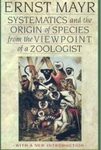![Exhausting the Earth Exhausting the Earth]()
Click to have a closer look
About this book
Biography
Related titles
About this book
From the introduction:
"China’s modernization, recognizing China's economic and technological backwardness in the contemporary world, now find the source of the obstacles to modernization in the “feudal legacy" of the past. Many of the historical discussions of this isue find the causes of the "prolongation of feudalism" in the structure of the rural economy and its relationship with the imperial state. Some stress geographical factors, others stress the small peasant economy, while others have concentrated on the retarding effect of the autocratic feudal state. China's past is seen only as a source of obstacles, not as a positive resource. The progressive functions of peasant rebellions, which Mao Zedong stressed as China's distinctive source of anti-feudal movements, are now played down in order to emphasize the limitations of the peasant mentality. Even those, like Fu Yiling, who advocated “capitalist sprouts" now recognize that these sprouts were limited and failed to develop into capitalism. The officials of the imperial state are blamed for obstructing technological progress and for their lack of interest in modern science. In the 1980d, China's intellectuals have pressed toward the most radical rejection of China’s past since the May Fourth Movement. Viewing the past as a unified, unchanging presence seems to them to be the only way to reject it entirely.
The reaffirmation of the Asiatic mode also involves the unfreezing of the unilinear Stalinist model of historical development. It allows diversity of evolution for different societies, free of the Procrustean six stages (primitive communism-slavery-feudalism-capitalism-
socialism-communism) leading all societies everywhere inevitably toward communism. Thus, it provides for creativity, and a welcome relief from cramming historical facts into an ideological straitjacket. Some of the historians who have revived the Asiatic mode show an unusual familiarity with European history and an interest in broad comparative history. Ultimately, their model of the Chinese imperial state echoes all the basic features of the Oriental-Despotism model, stressing the fundamental differences between the evolution of Western societies and the rest of the world. Just like Montesquieu, they find the causes of China's current backwardness in the lack of free cities, lack of an independent church, and lack of a hereditary nobility in the traditional society. The Western concept that asserted the inevitable superiority of the West and the backwardness of the East is now fervently adopted by young Chinese themselves to overcome their own backwardness.
From the Western historians point of view, the recent embracing of Oriental Despotism by some Chinese does not validate the concept. It does, however, illustrate the importance of the issues raised by the concept for contemporary China. The degree of power of the imperial state; the control of the state over the peasants it ruled; the attitudes of the state officials toward economic progress and technological change – these historical issues deeply concern young Chinese interested in their country's future. For all the inadequacies of Oriental Despotism as a historian's tool, it does provide a plausible explanation for China's current predicament. Those who use it are, by implication, boldly criticizing the bureaucratic power of the current regime, equating it with a recurring Oriental Despotism which is stifling the people's energies. A study of the real capabilities of the Qing state should provide a better understanding of what contemporary China can become."
Customer Reviews
Biography
Peter C. Perdue is Professor of History at Yale University.



































